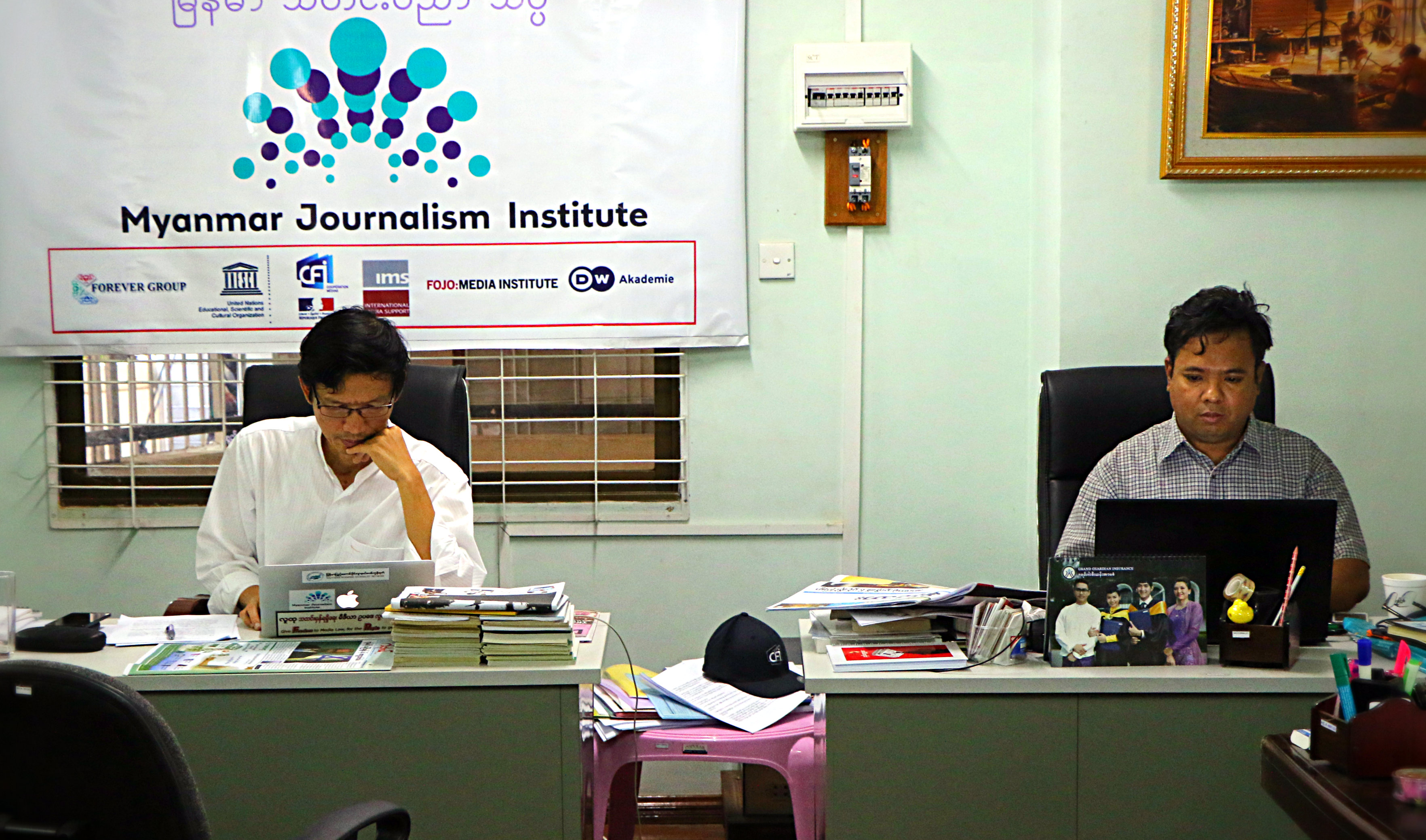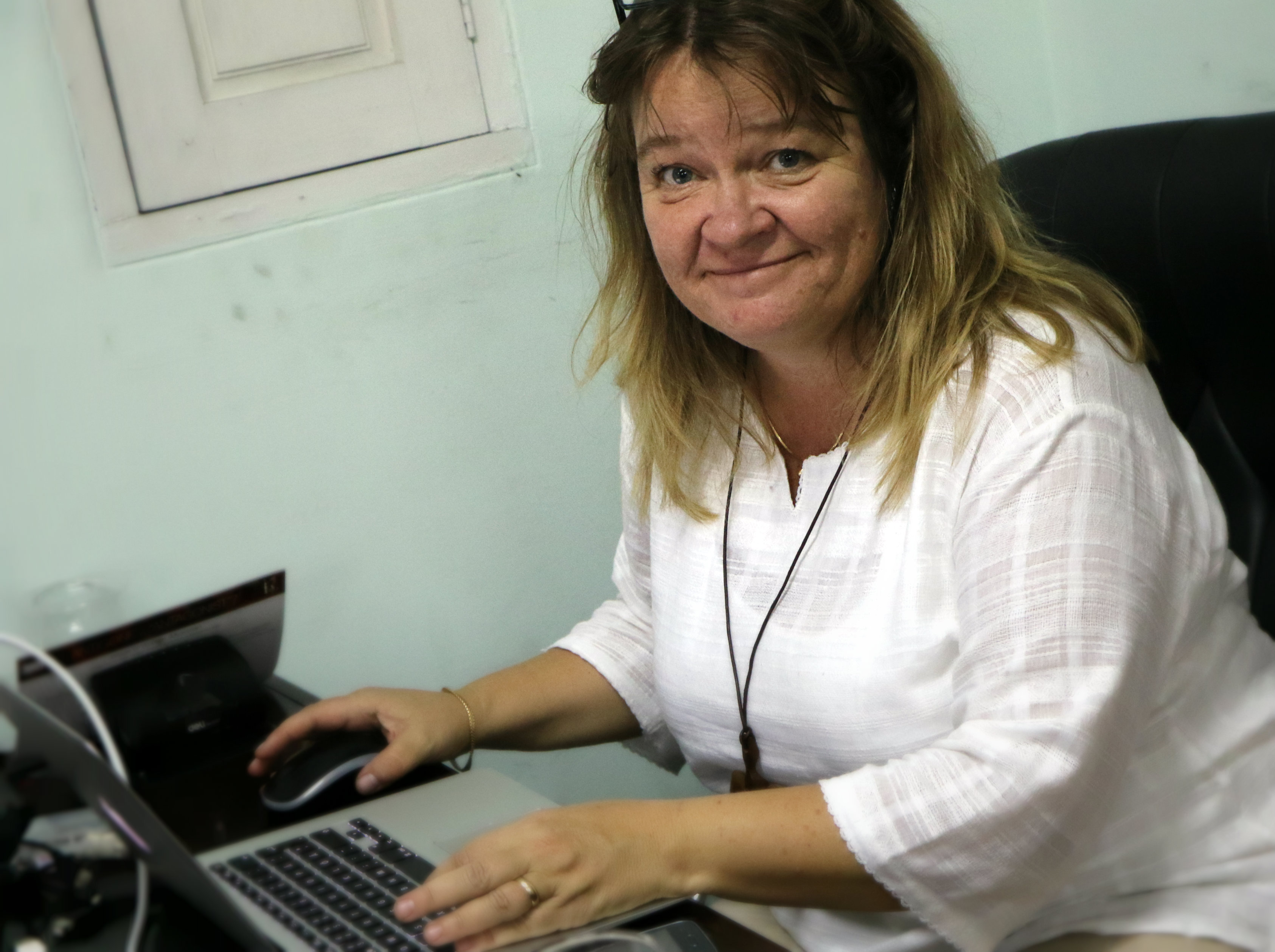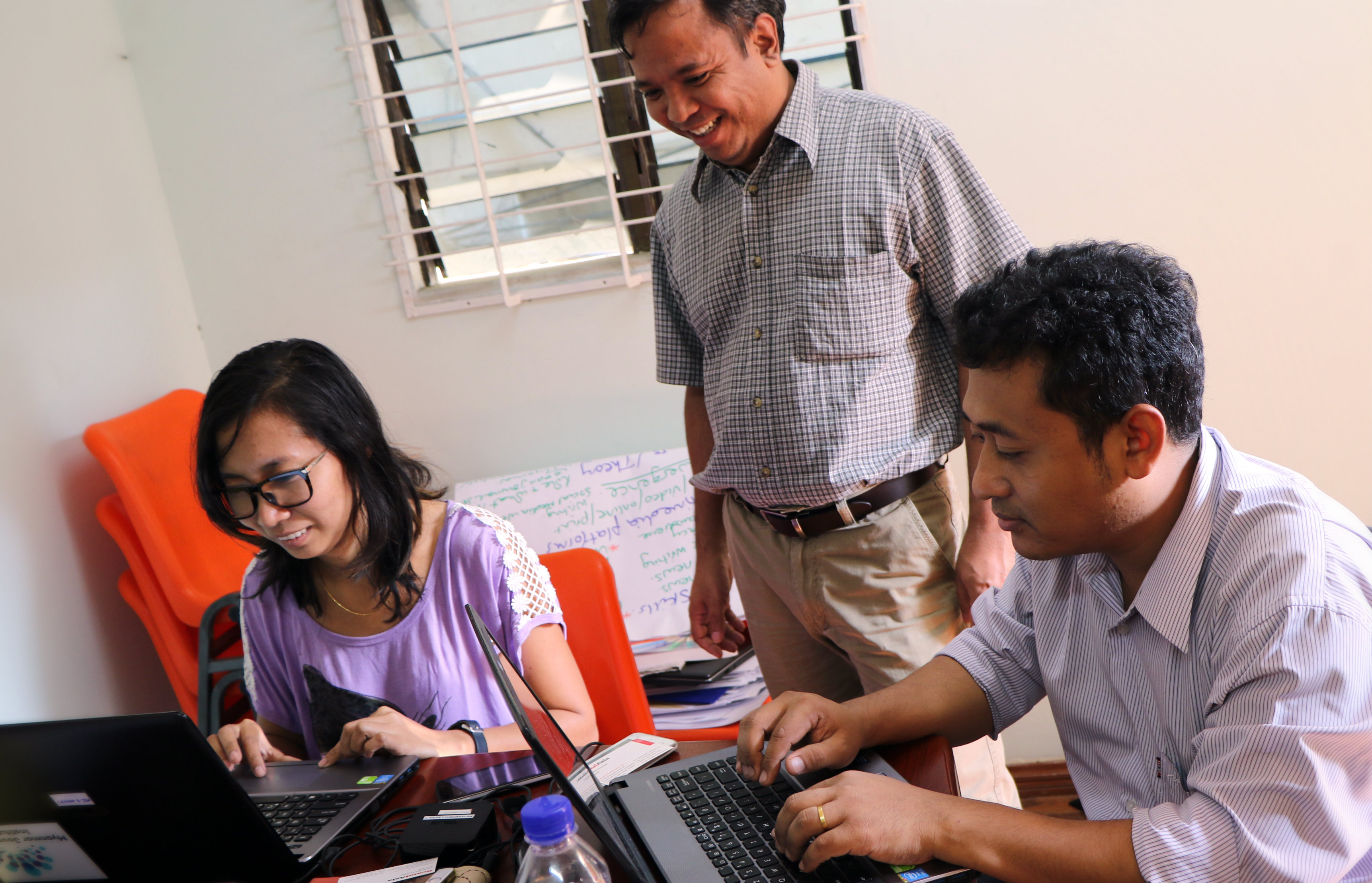
Fojo, Sweden’s leading media development institute for professional journalists, has together with partners recently initiated an independent journalism institute in Myanmar, supported by the governments of Denmark, Norway and Sweden. “Capacity building of Myanmar journalists is on top of Fojo’s agenda, Swedish International project manager says.
Swedish Petra Quiding has been training journalists for many years in different parts of the world, including Madagascar, Cambodia and India.
Since November last year she has worked for the Swedish organization Fojo in Yangon, Myanmar. Her job here is to support MJI, Myanmar Journalism Institute, which was recently established in 2014 by Myanmar media professionals.
“MJI’s work is remarkable, and their way of thinking is new. It is an independent training institute that is training its own Myanmar trainers,” she says.
That is why Fojo wanted to support MJI, an institute training mid-career journalists, as well as running diploma programs in Myanmar. Fojo believes that the institute should be able to run itself, be owned by locals and not run as an international initiative.
“Many in the international community is standing on the border of Myanmar waiting for the election and the long awaited broadcasting law. If those two things goes well, there will be an increase of international initiatives working on amongst other things, improving freedom for the press, I think,” Petra Quiding says.
The traditional way of training journalists have been to give short intensive courses and then leave again.
By supporting MJI, Fojo sees a way to support a long-term local institution, a strategy that Fojo has used in many of the other countries, they worked in.

Get the message out
Besides supporting MJI, Petra also focus on training ethnic media groups in Myanmar.
“One basic journalistic tool in areas of conflict, is describing the conflict in a way that is not confrontational, to find the real interest behind the two sides different positions. When you have done that, it is easier to get comments, or finding other examples of describing the conflict in a solution oriented way. This can also be practiced here,” she says.

“The journalists suddenly feel that these tools open up doors for them. Finally they can write about different issues that they were afraid of touching before,” she says.
On its way
Stressing that she is a newcomer in Myanmar, Petra sees several positive signs of improvement in Myanmar regarding freedom of expression, even though there is still a long way to go.
The fact that MJI has been established, that exile journalists have been able to move back and start working inside Myanmar again, the promise of a new broadcasting law that will give permits to set up community radio and TV that are not dependent on the Government in Myanmar, and that it is finally possible to hold debates and meetings in the country are just some of the improvements in Myanmar.
“You cannot really say that there is freedom of expression in this country – there is not, but there are many positive signs of a movement in that direction,” Petra says.

